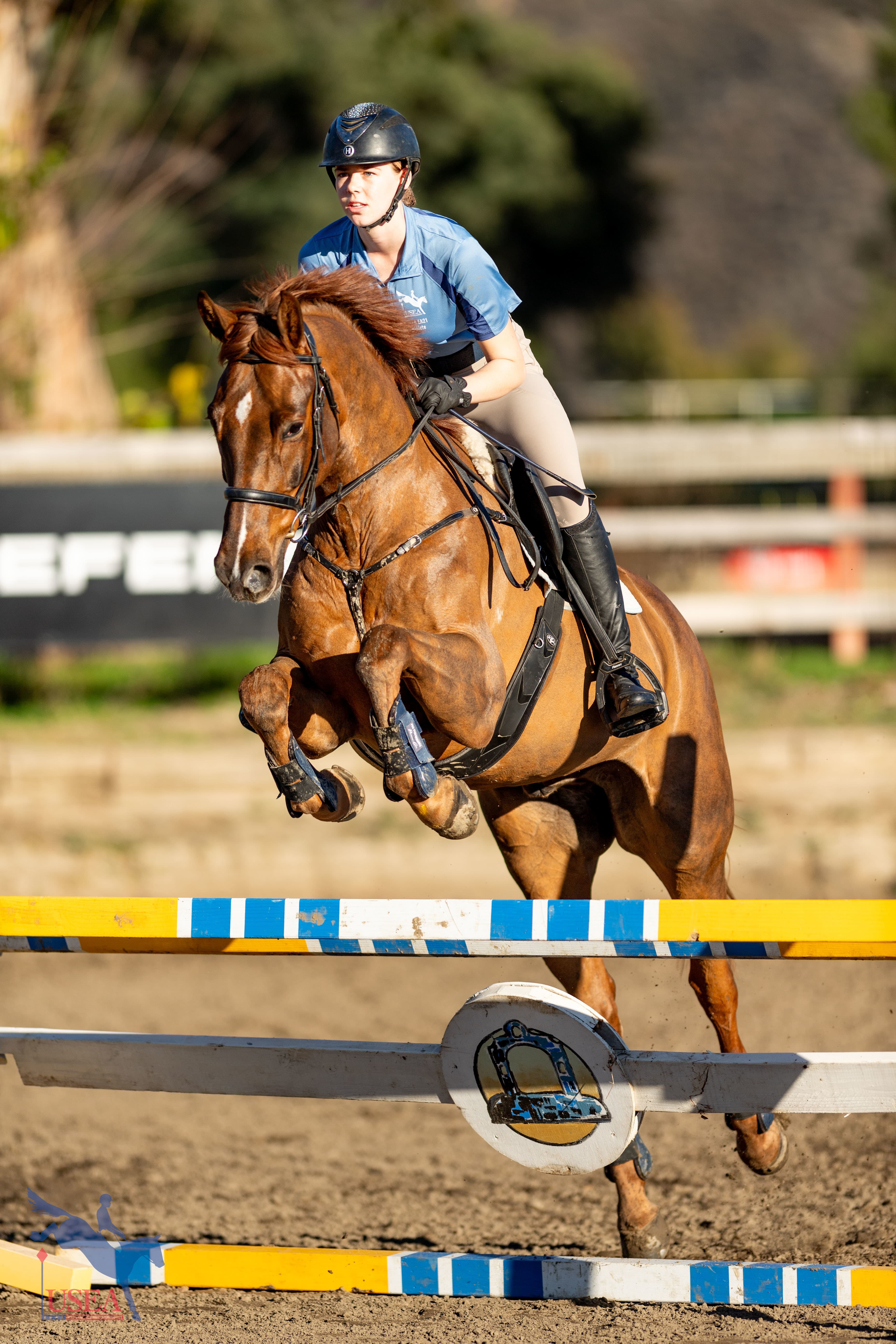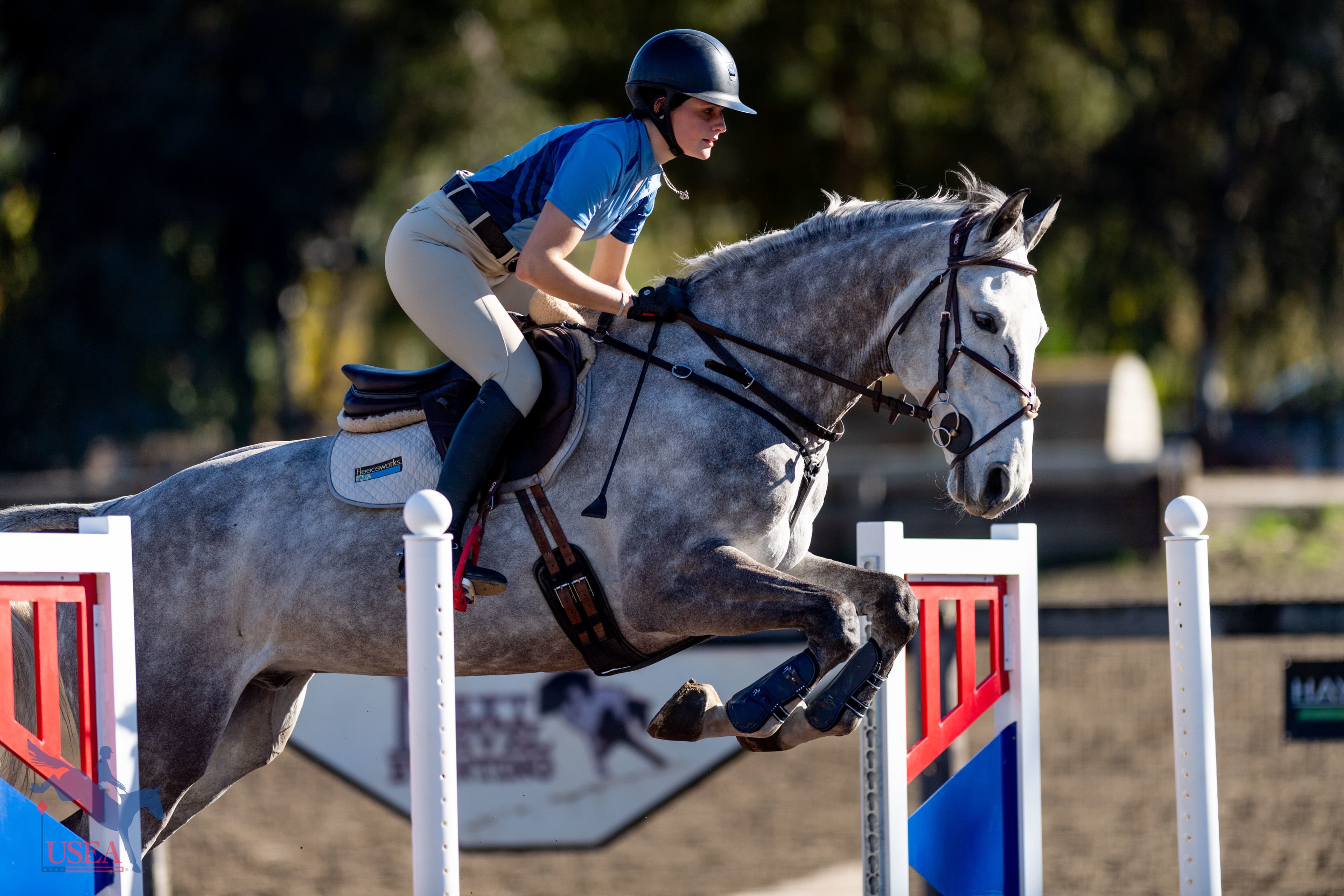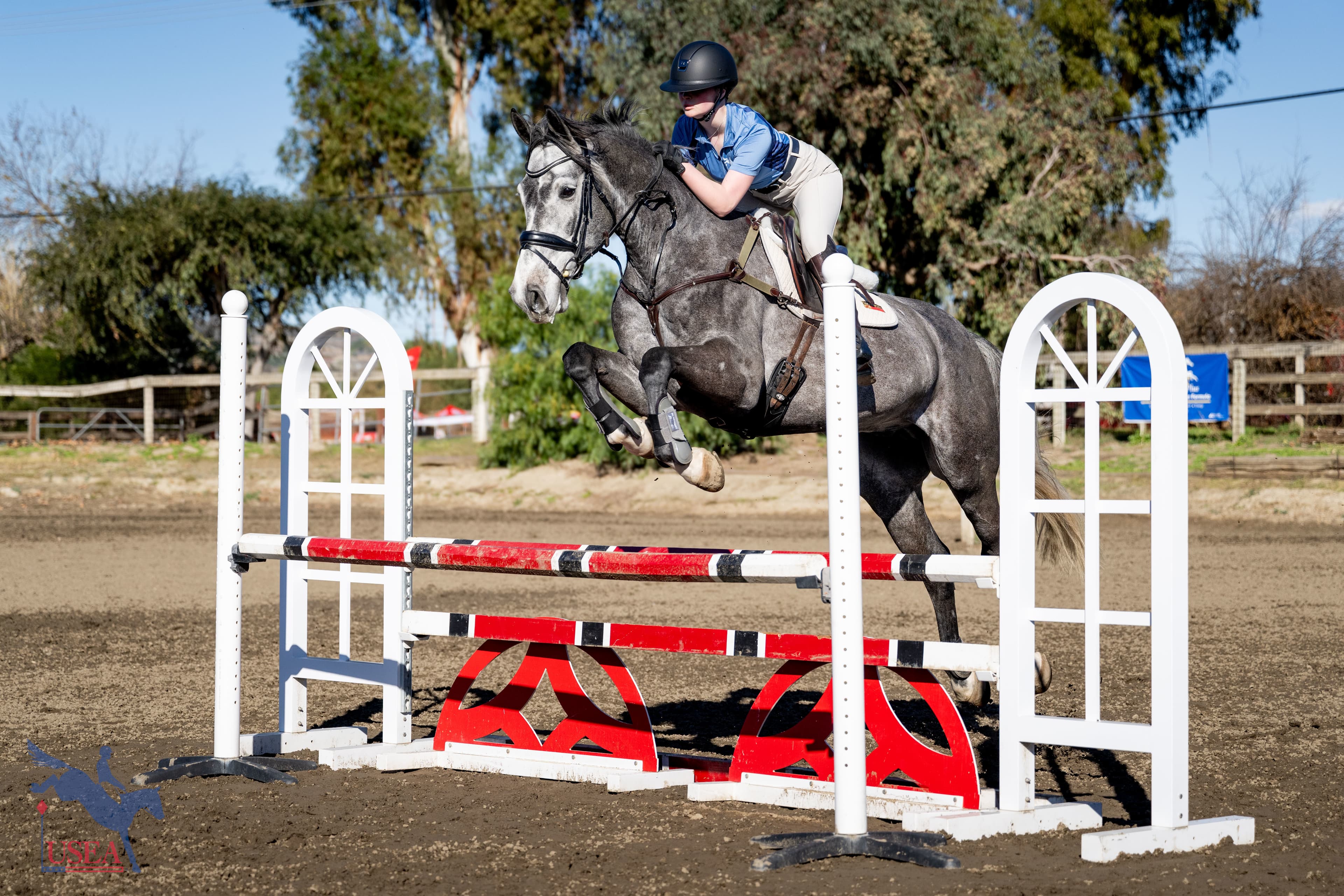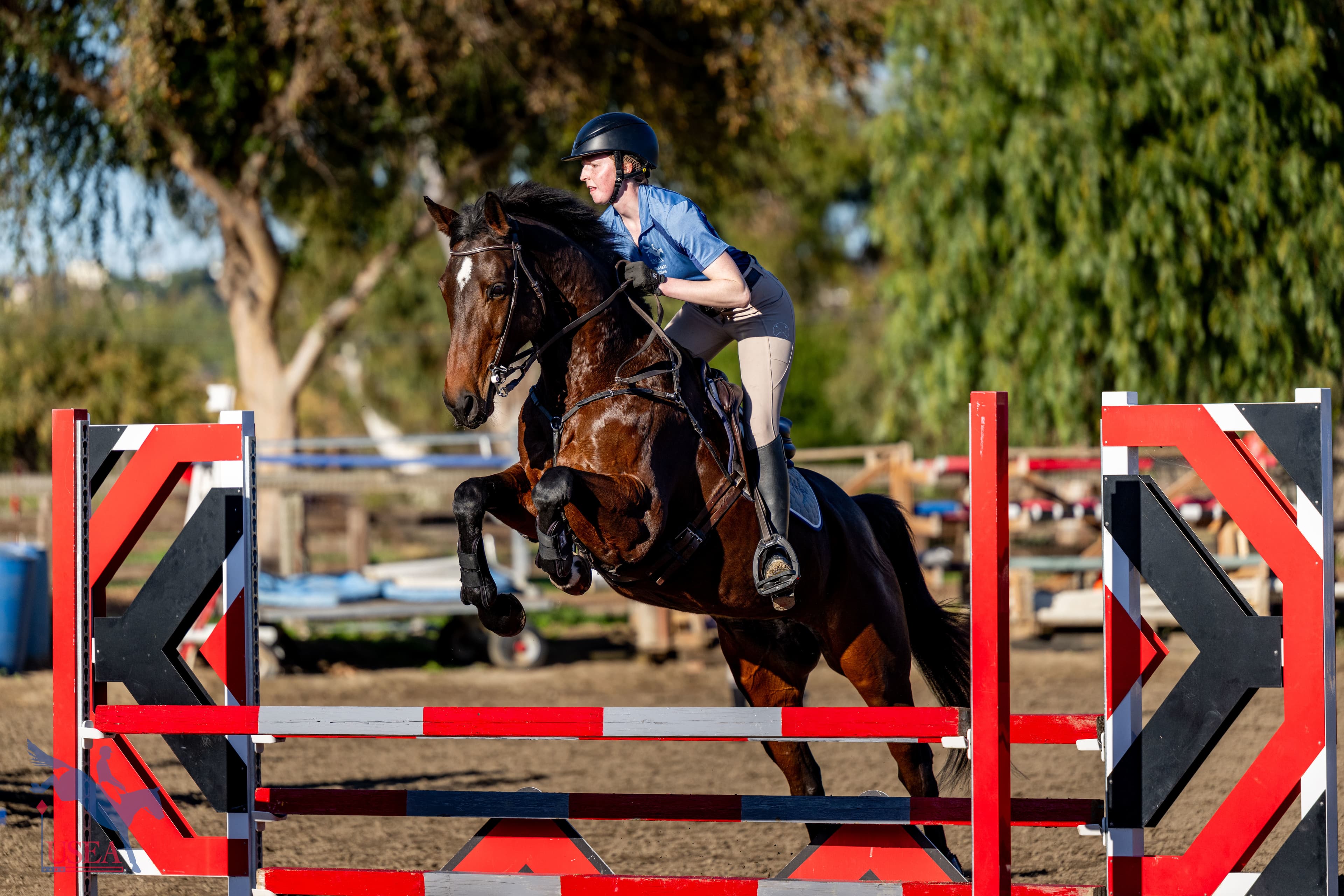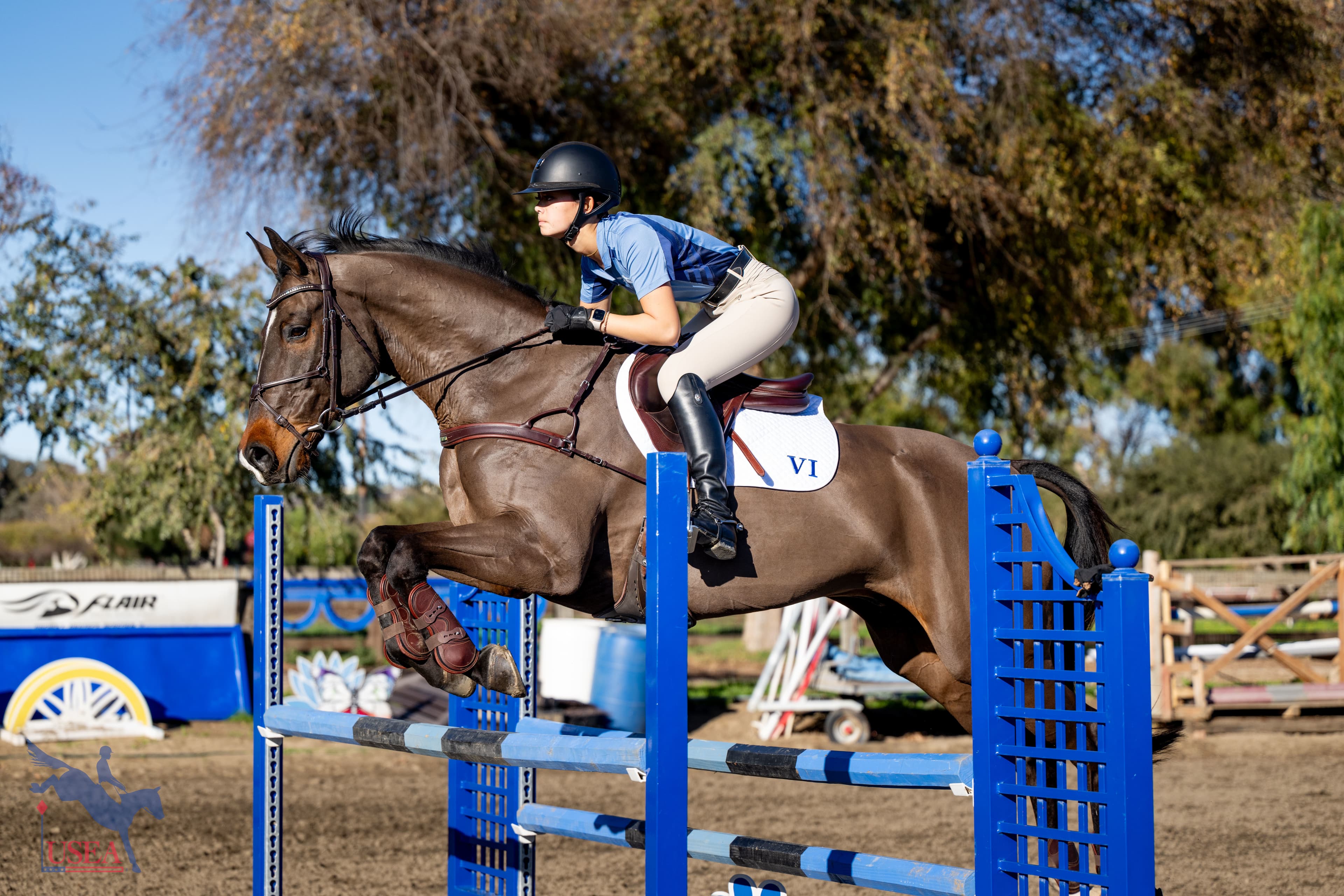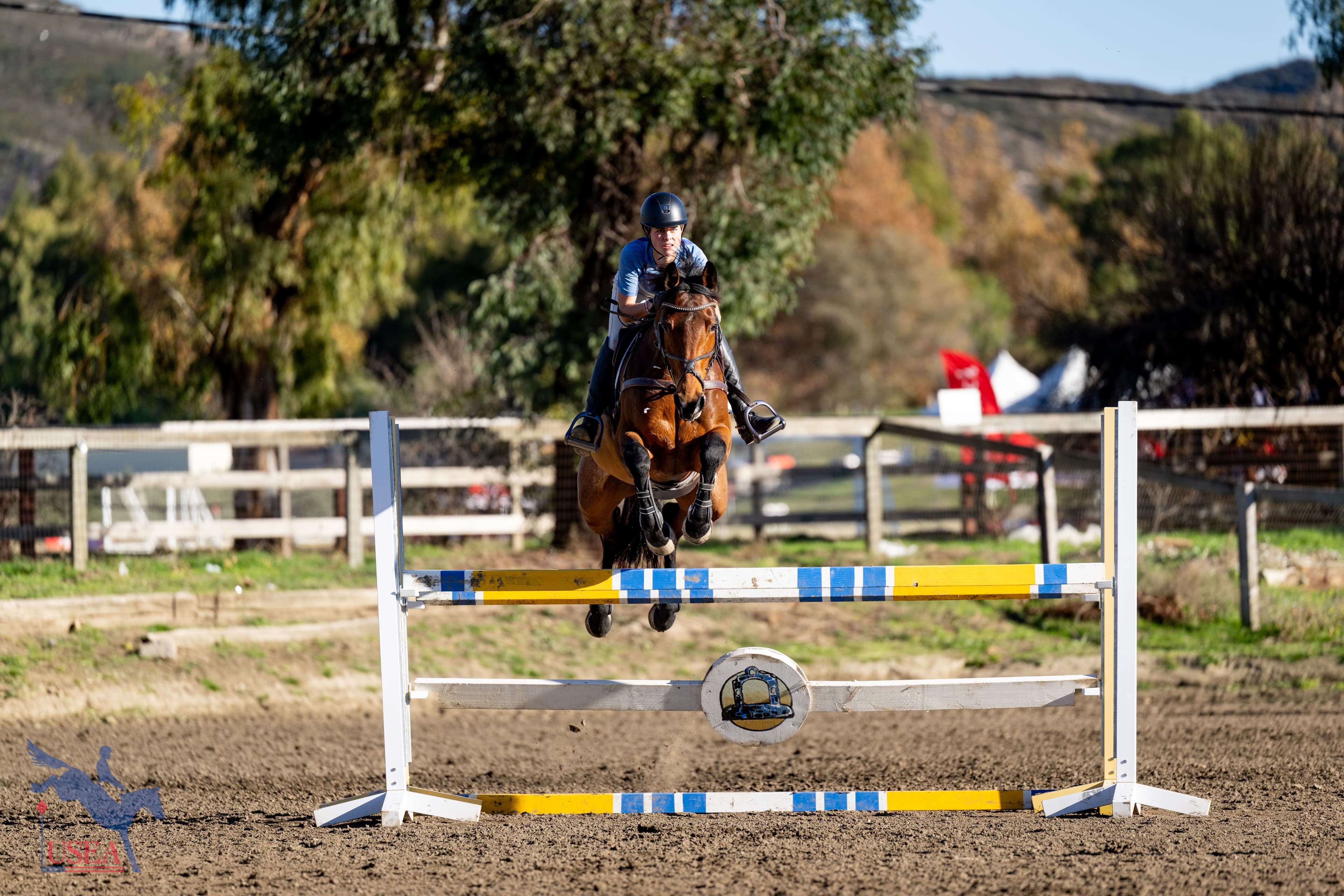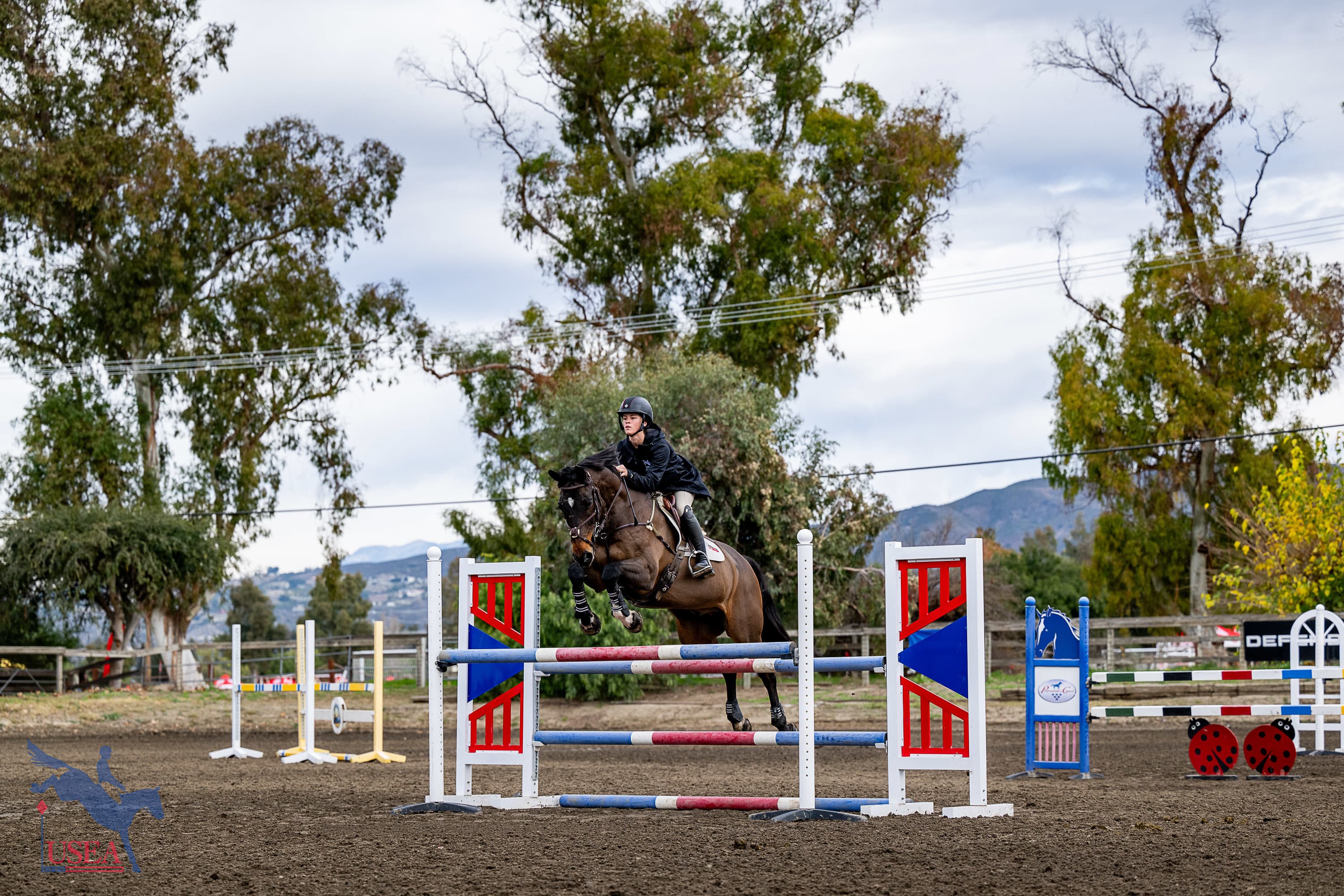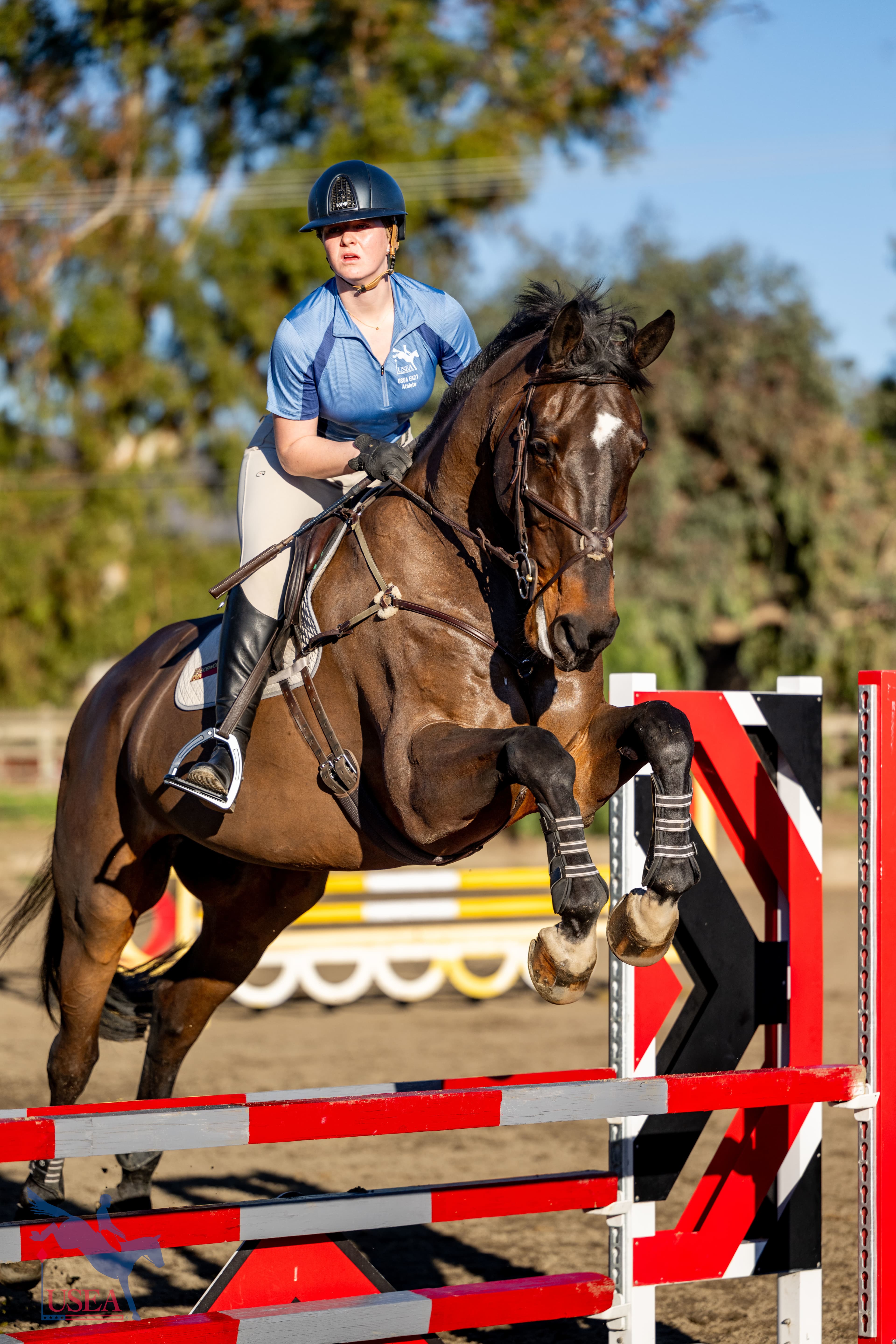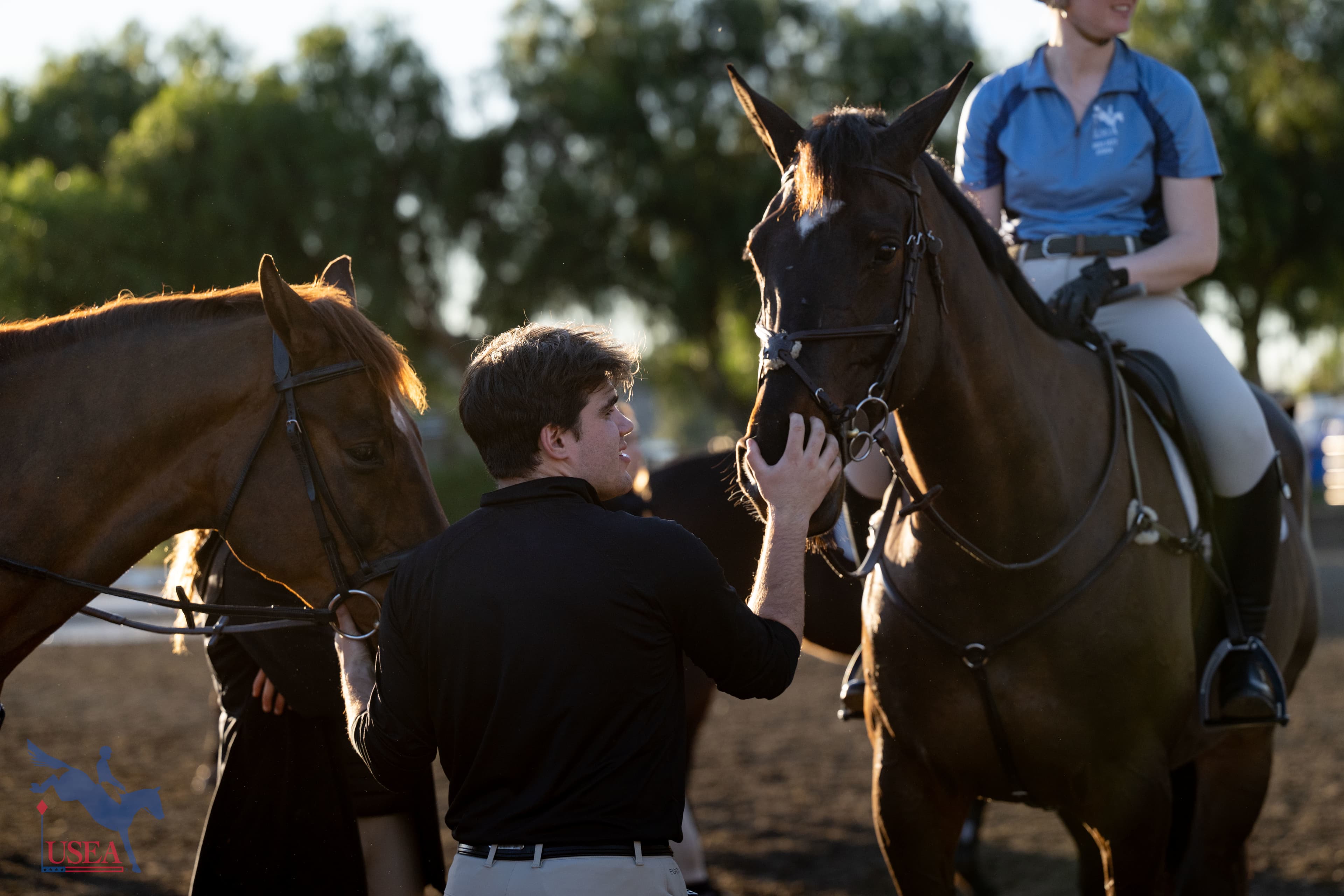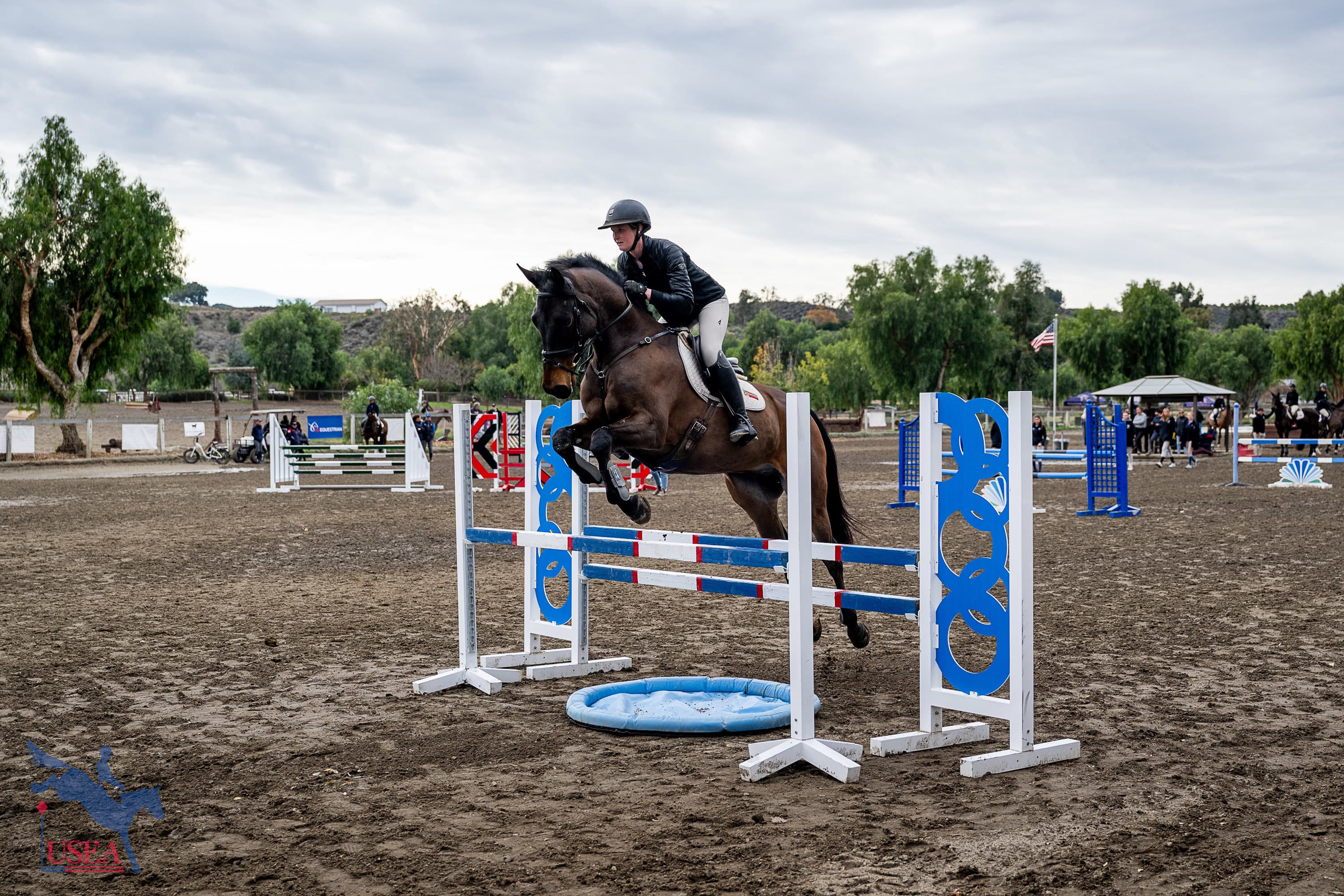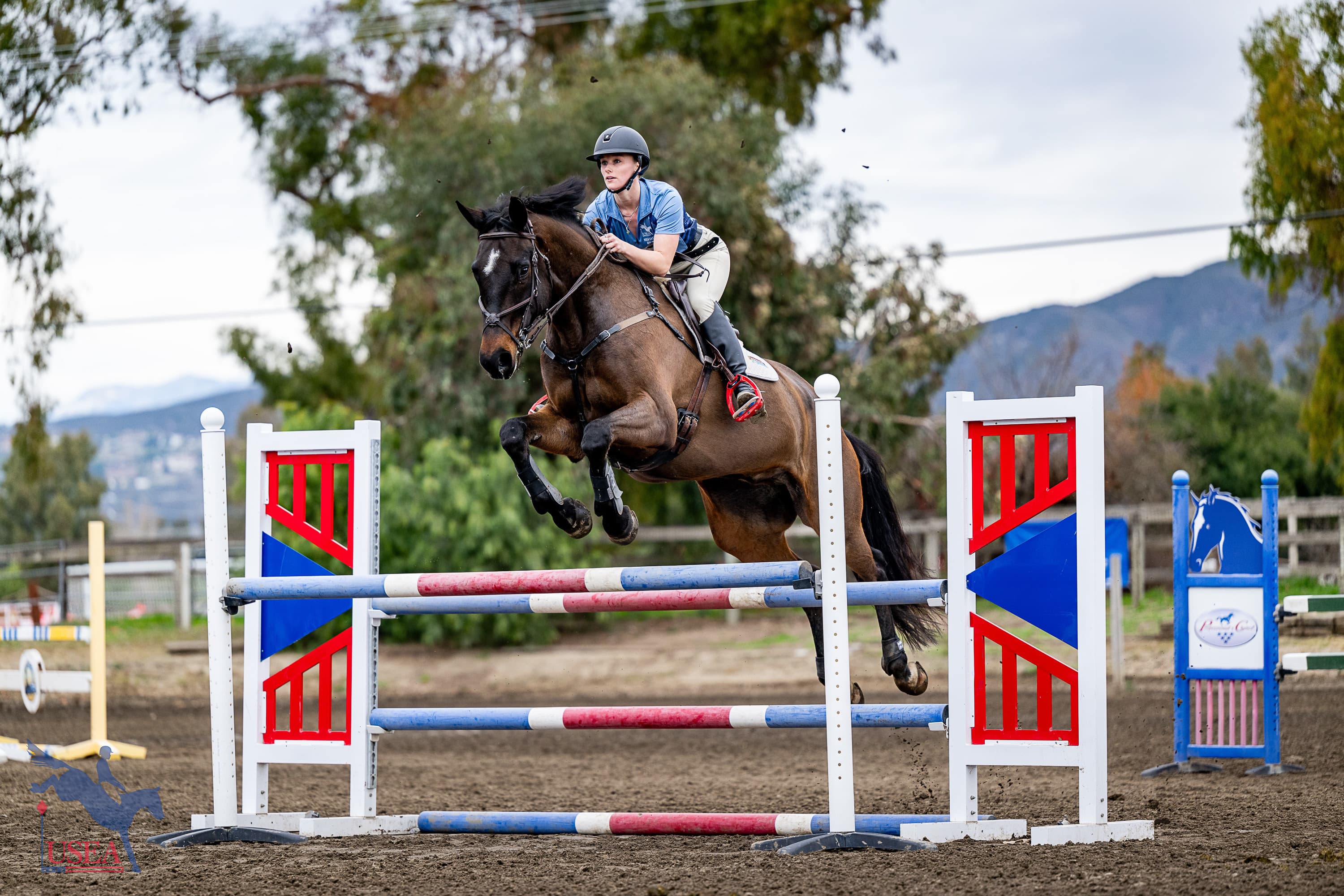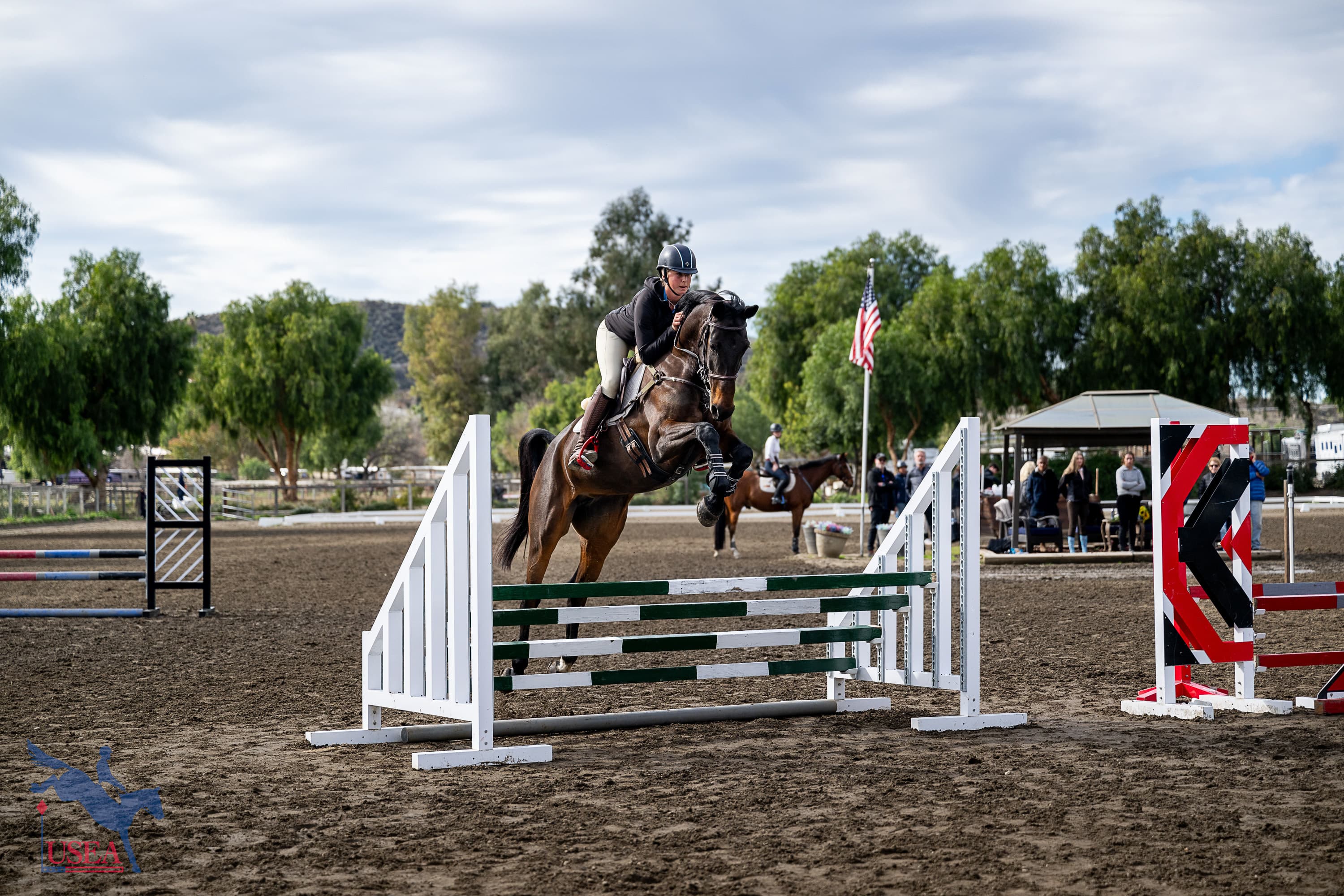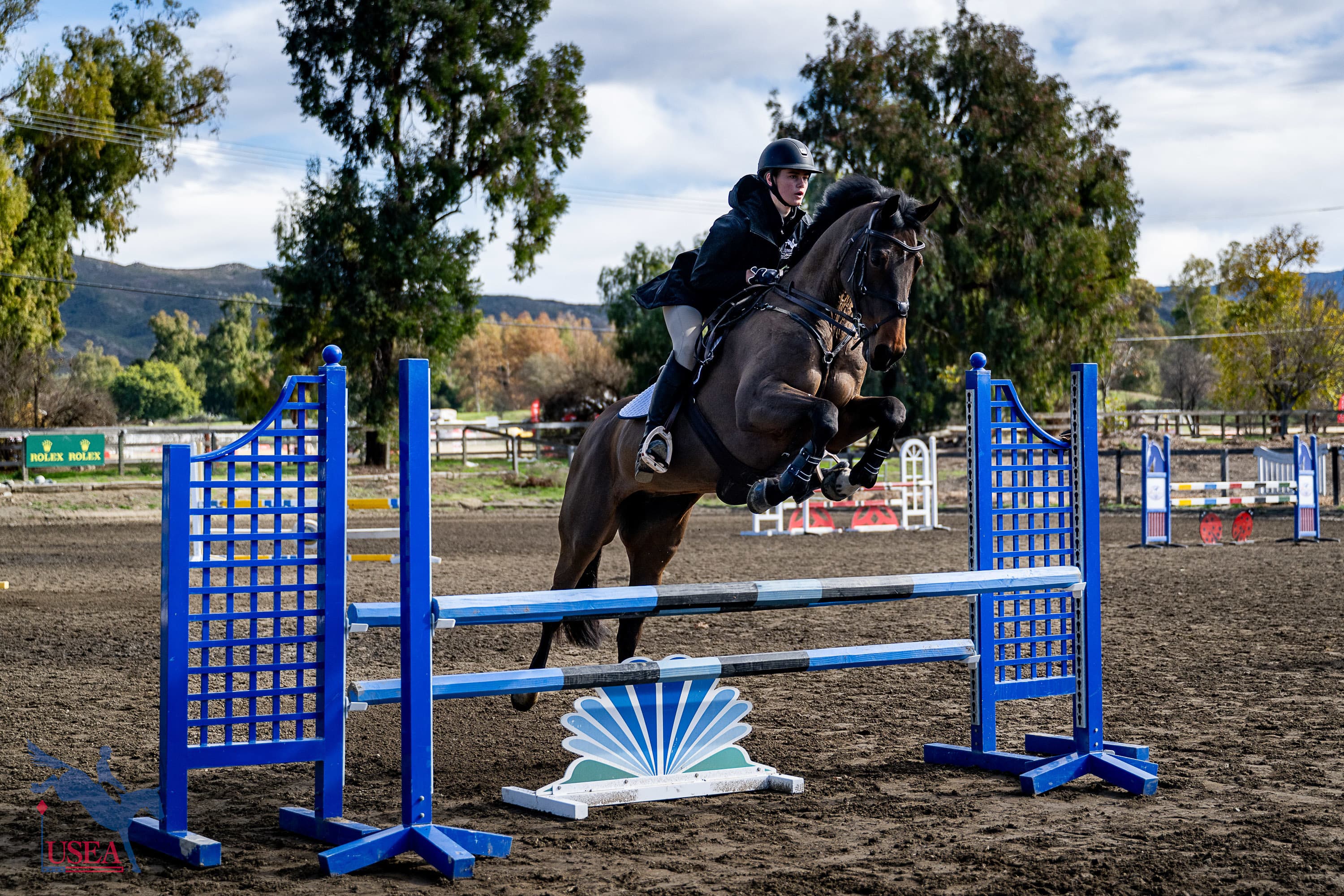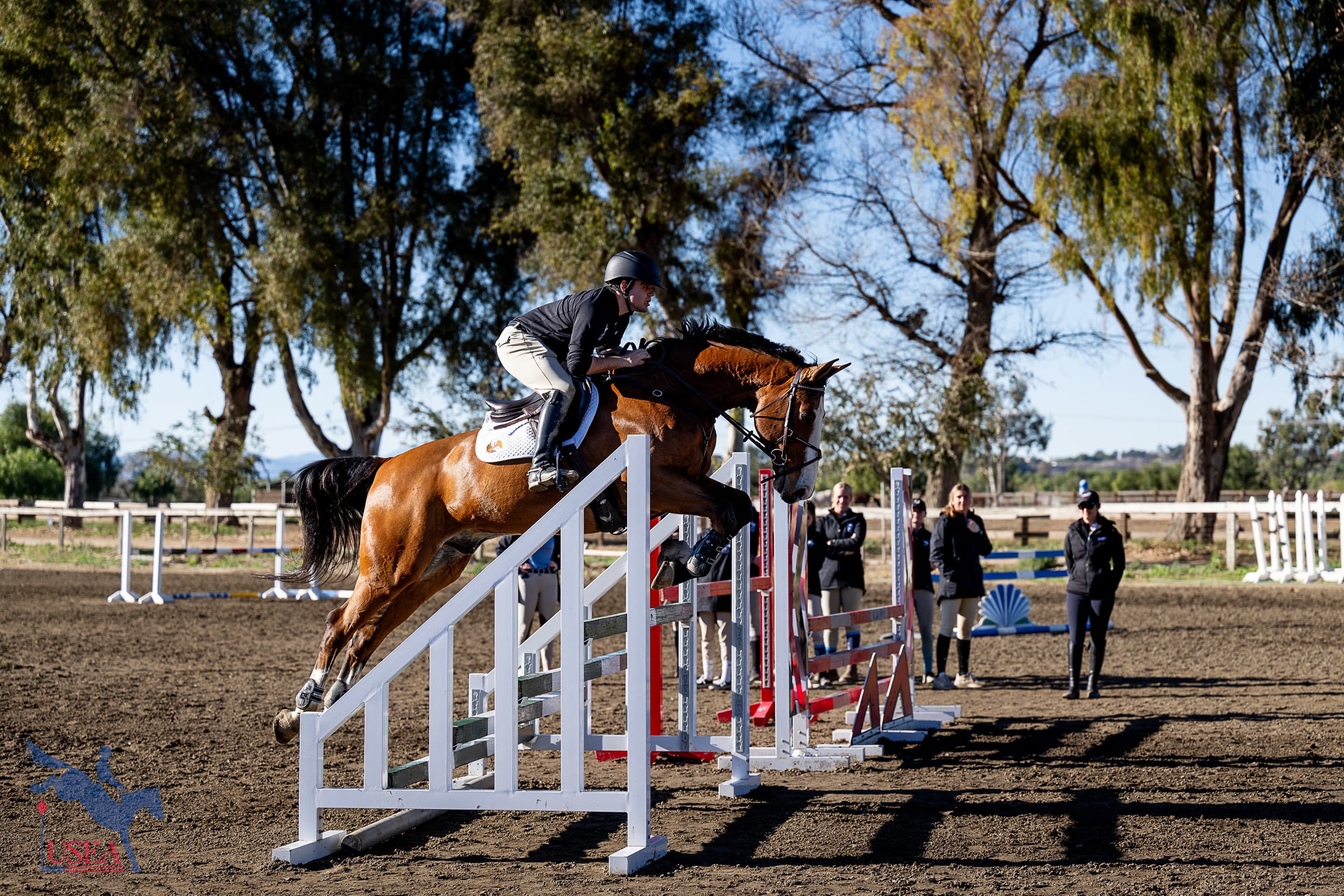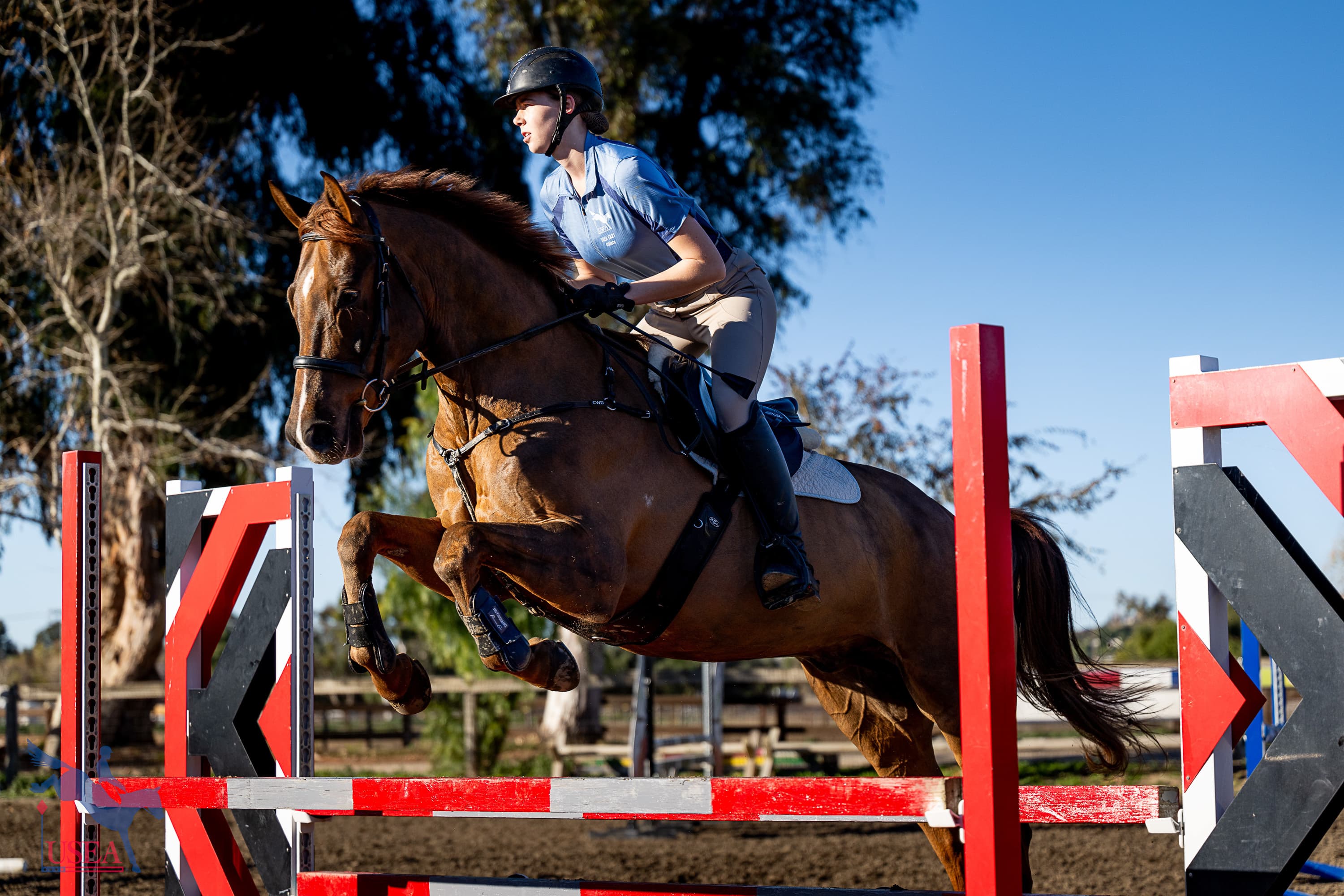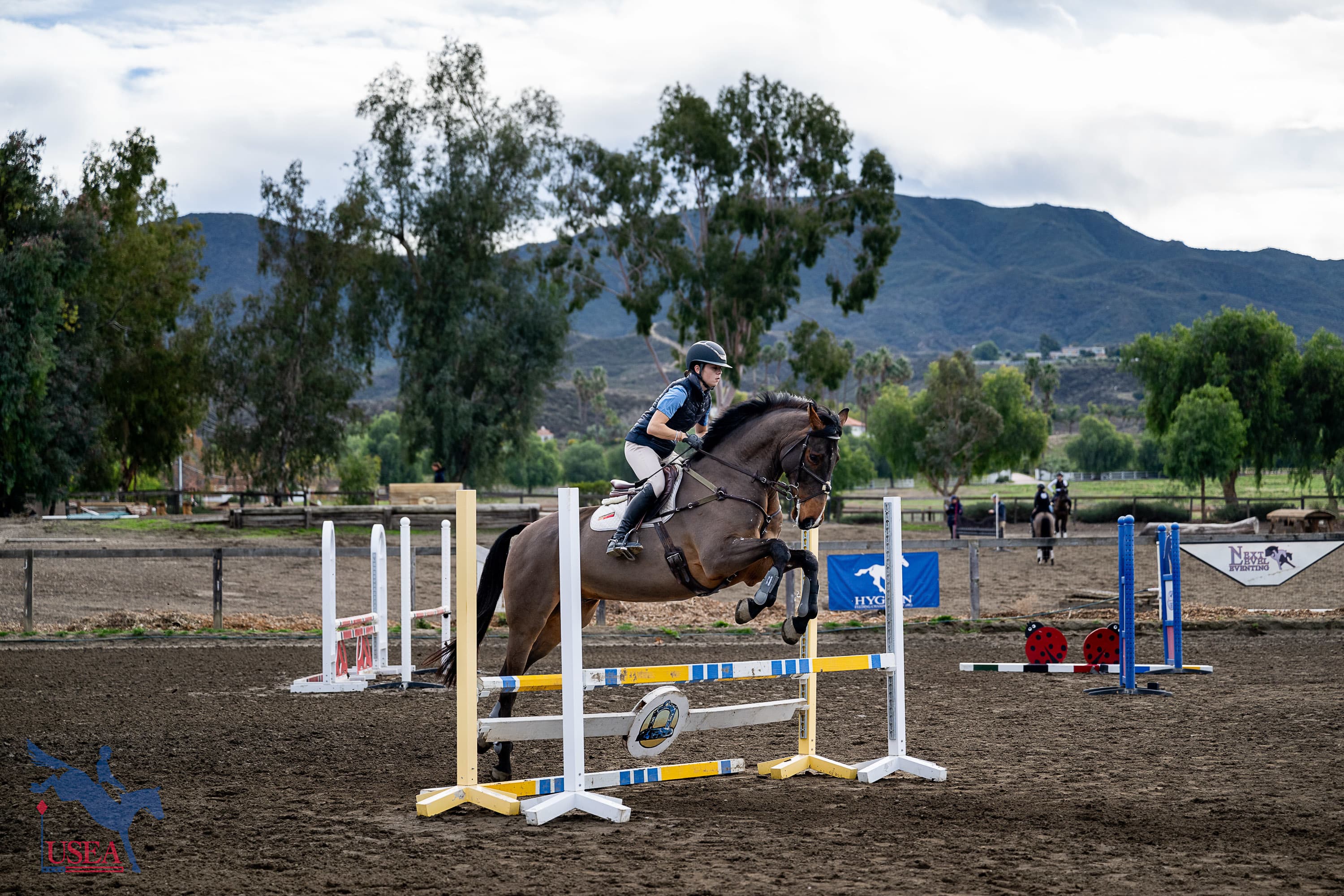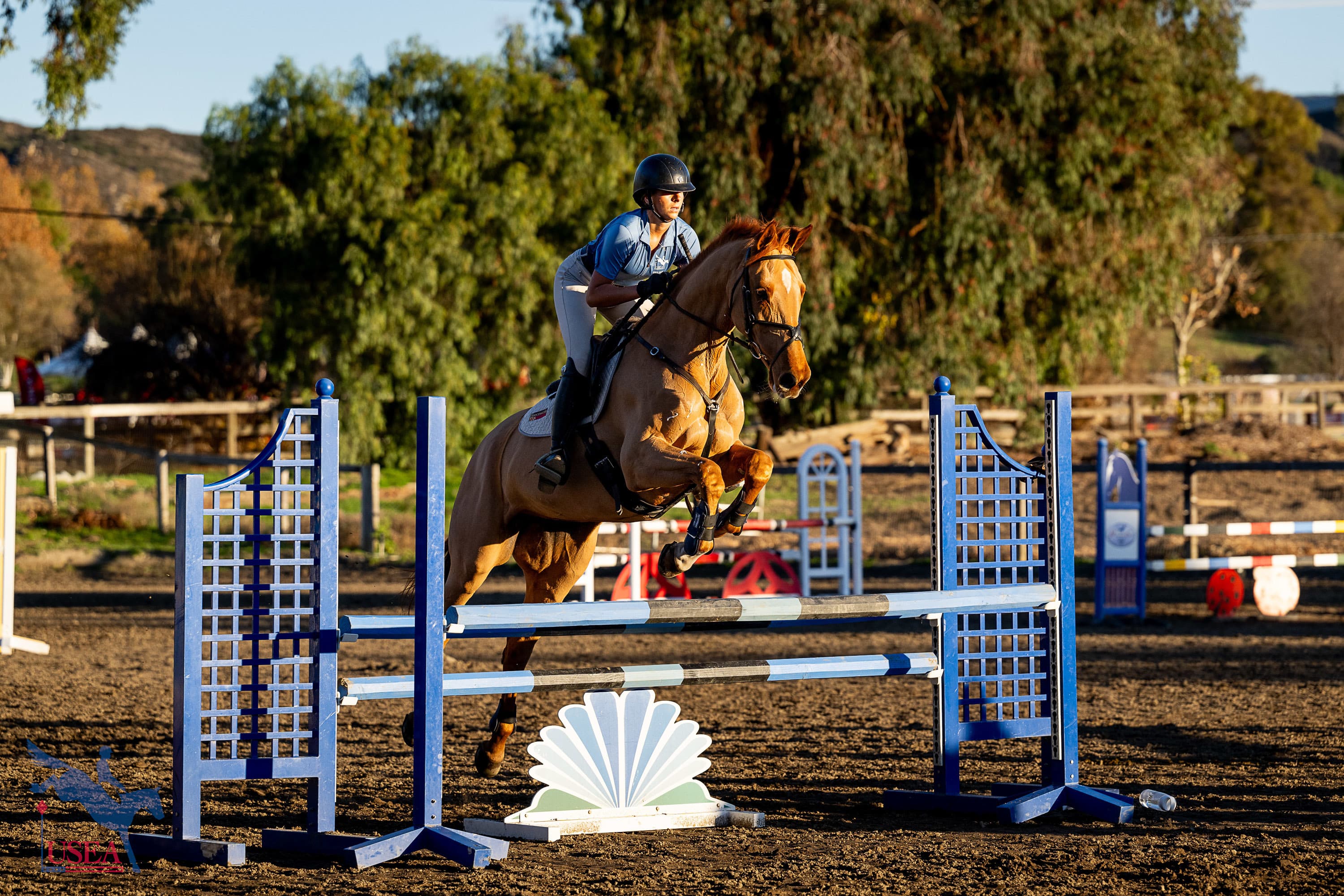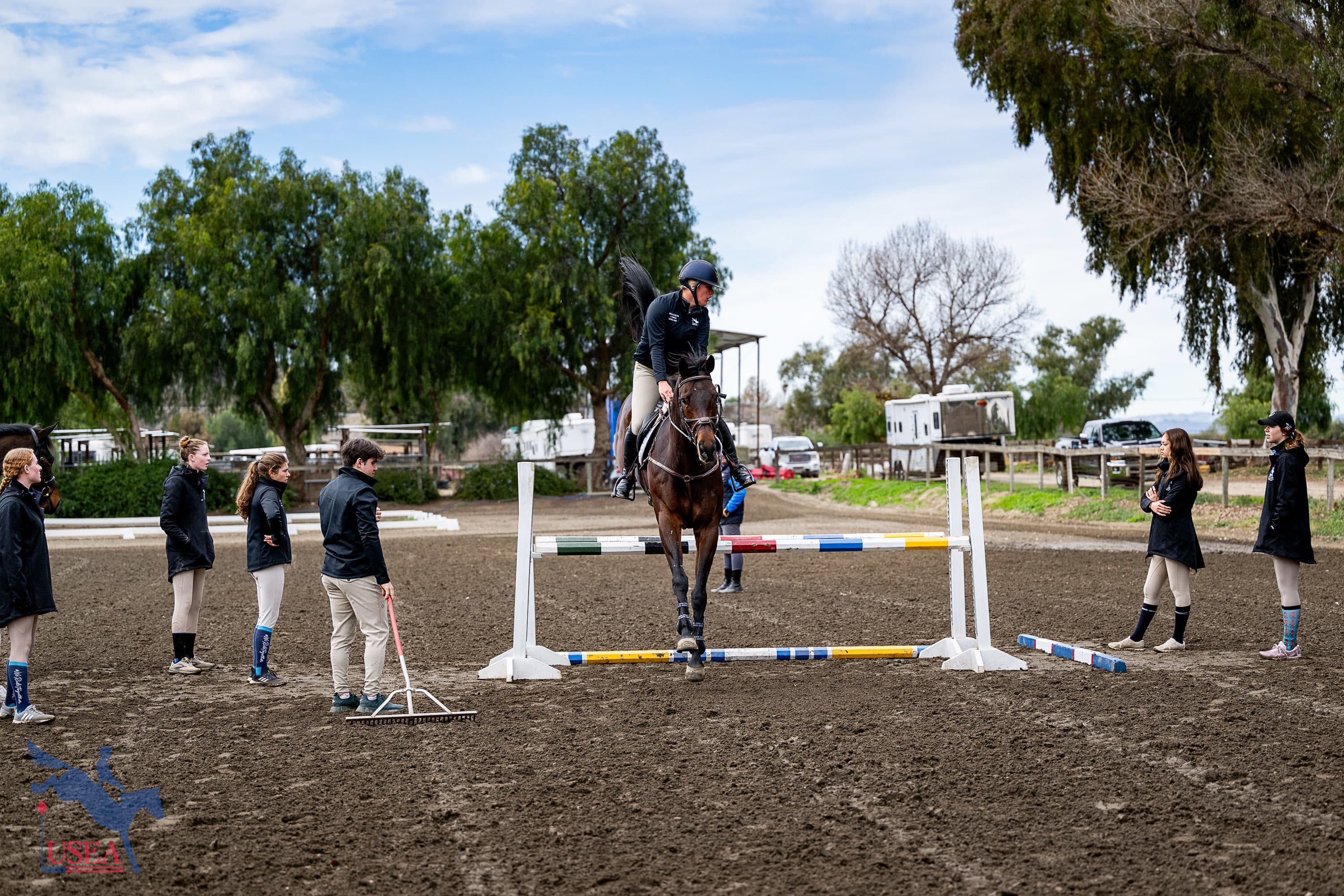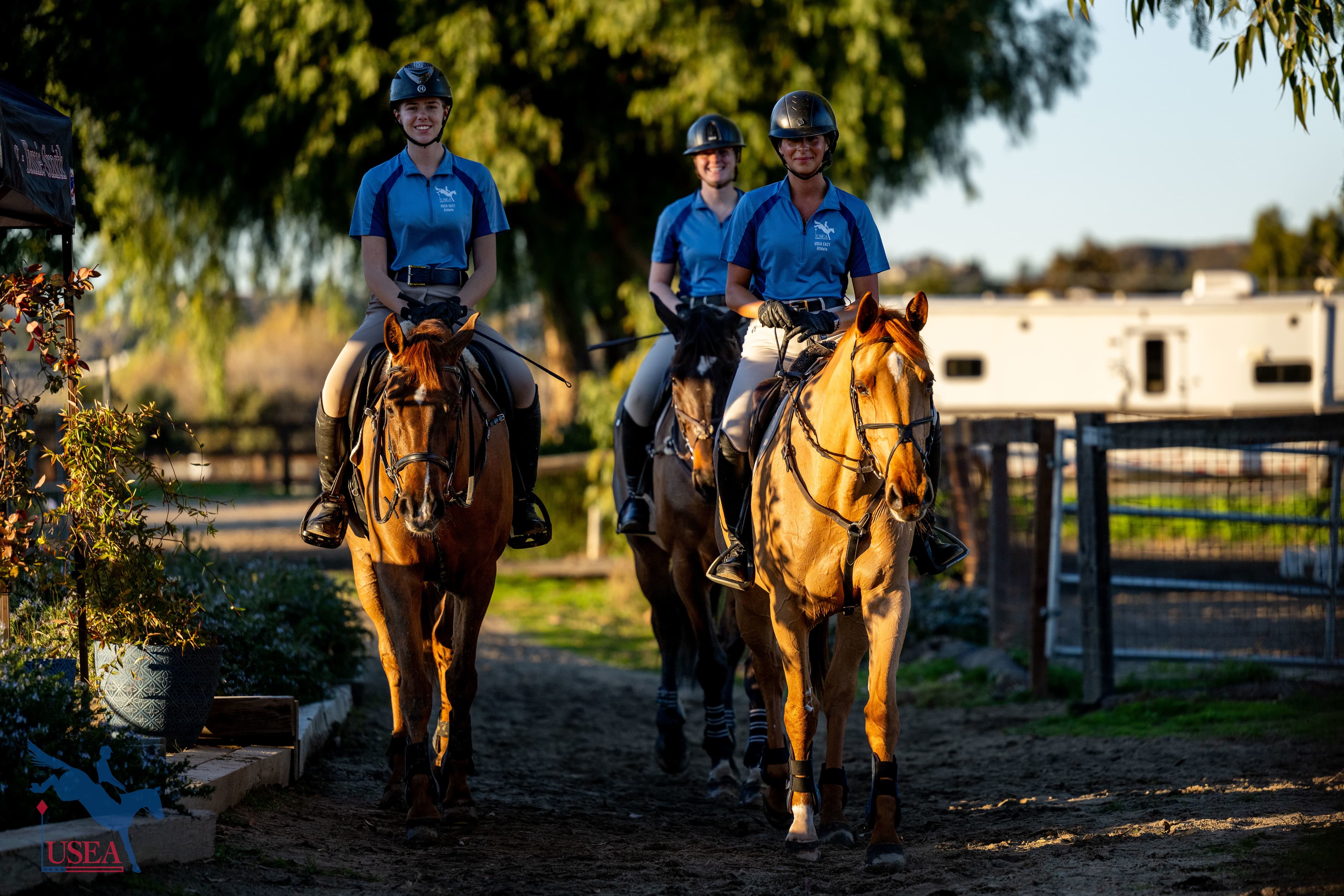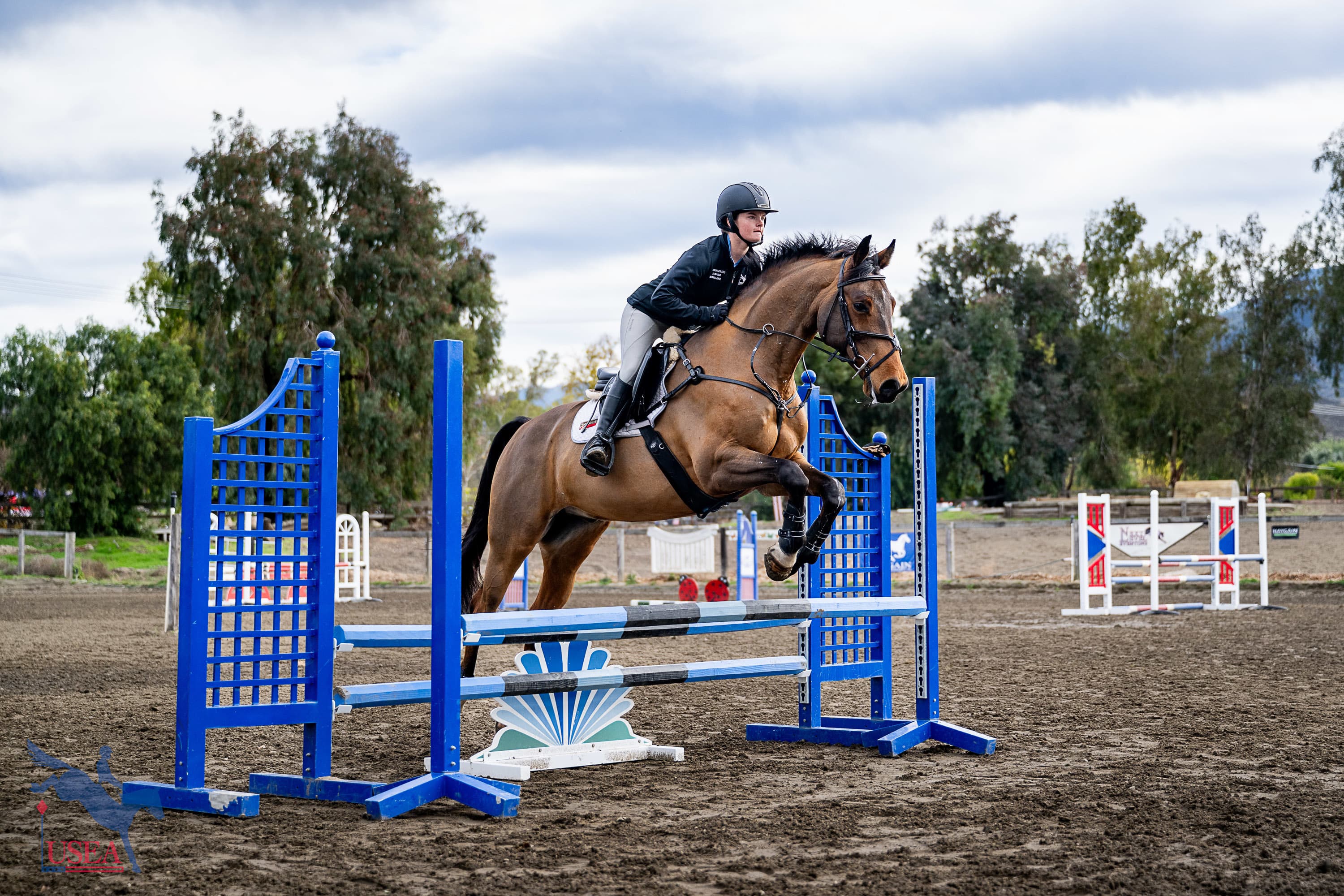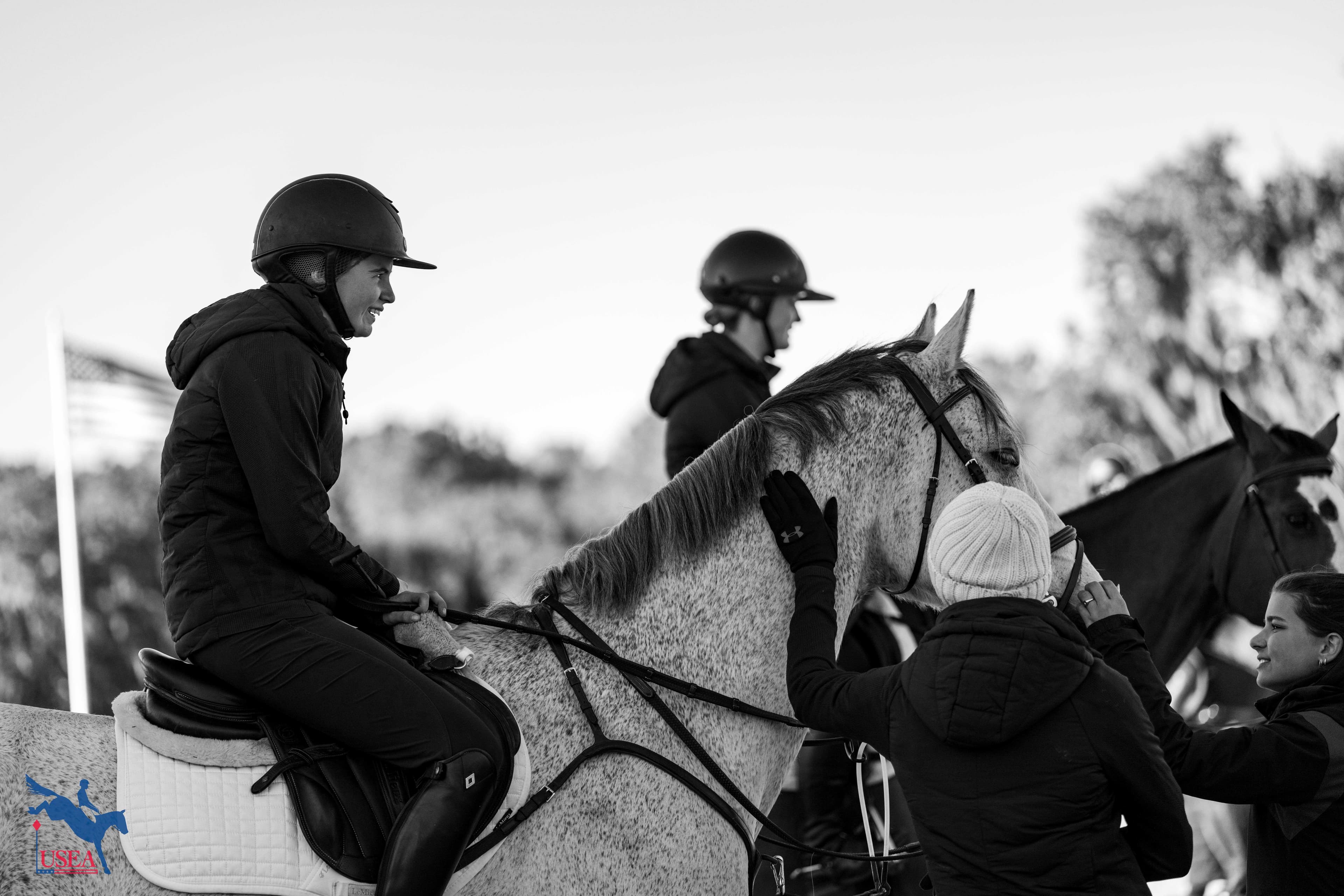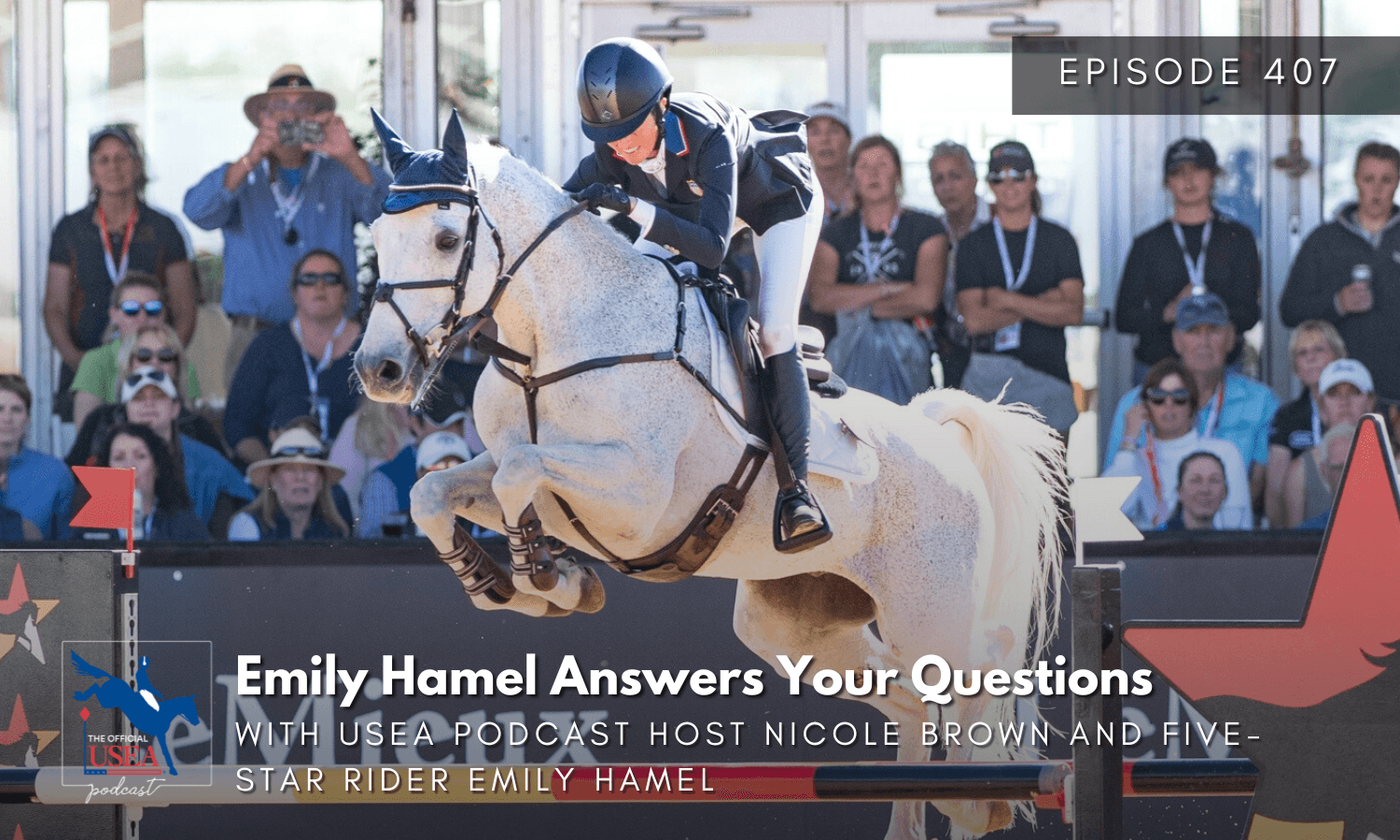Go Better and Go Confident on Day 4 of EA21 National Camp
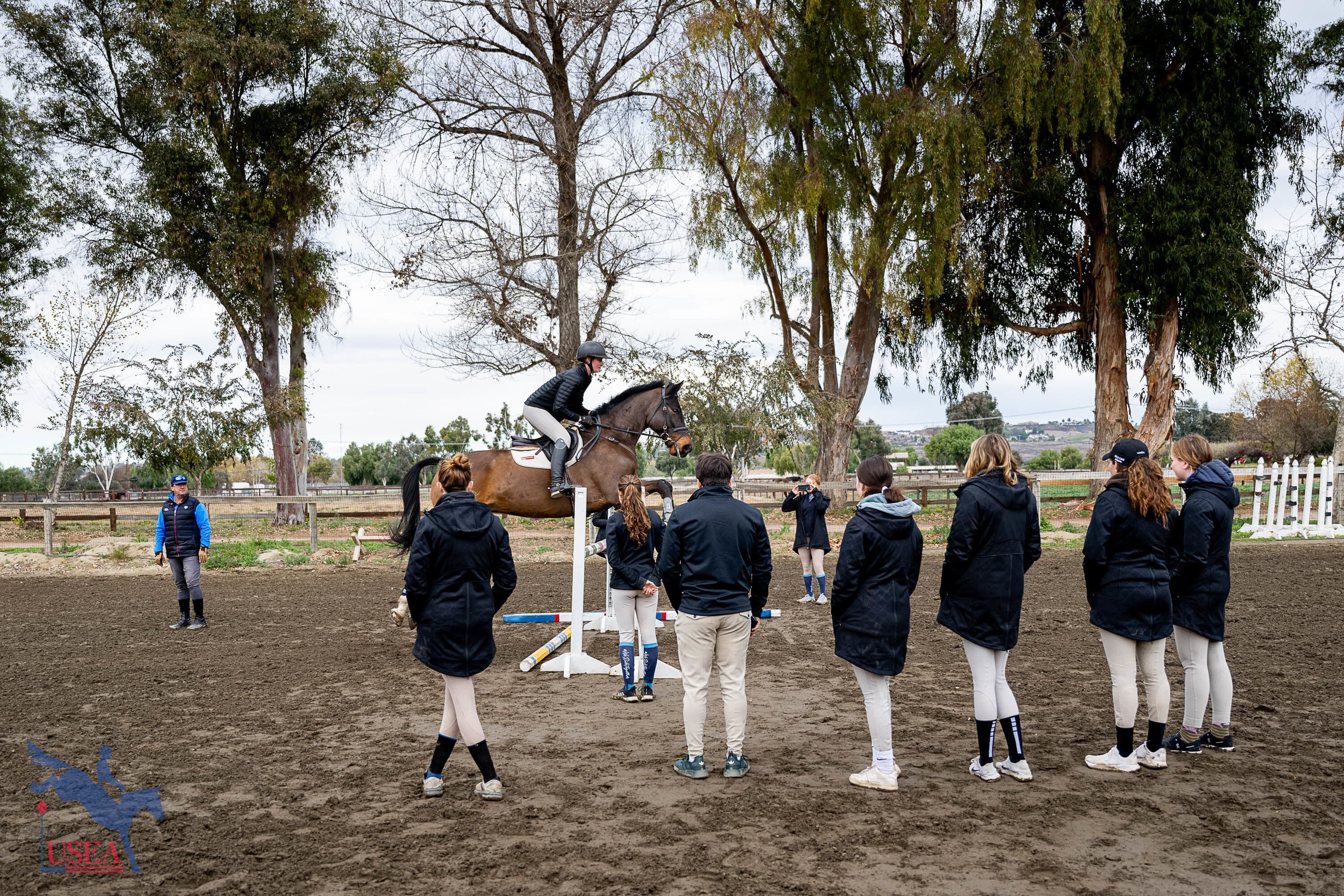
Temecula, Calif.—Jan. 5—Day four of the EA21 National Camp held at Kingsway Farm dawned frosty and started with a bit of reflection.
“I've just been thinking about all week, how [David O’Connor] used to always say to me to be a student of the sport,” Caitlin O’Roark said candidly. “I've always wanted to do this as a career. [The camp has] just made me want to even more.”
“It's been really exciting. There's a lot of knowledge being provided to us and a lot to take in," Emeline Gilbert commented.
Harper Padgett, a rider who attended last year’s EA21 National Camp as well as this year’s edition, remarked of her second experience that there was a greater sense of the community. In addition to a broader network of aspiring professionals, she also added that “it's nice to be riding a horse that you don't know and having David's wisdom [to get] you through [to] a horse that that’s having difficulties or difficulties I have riding him.”
The sentiment was echoed by Braden Speck, whose catch ride is very different from his personal ride. “I definitely can feel [the theory we’re learning] in the riding.” Speck used the techniques that O’Connor, the EA21 Director of Coaching, had been teaching them through to help his mental focus and thought process with a new ride. “That's the first thing I focus on: what do I need to do next? And what do I have right now? Do I have the rhythm? Do I have the suppleness and relaxation?”
Kayla Dumler, another rider who has attended the EA21 National Camp for two years in a row, has gotten the experience of catch riding and now bringing her personal horse to the camp. “It's always extra special to get eyes like David's on your own horse," she said.
Indeed, the detail of a master’s eye was helpful to the established partnership. “David tried to change my position a little bit in the jumping. It was something that I was wanting to try and other trainers have pointed out but the way that he said it finally clicked for me," she added.
After reflections, it was time for a reality check.
O’Connor, Rebecca Brown, and Bec Braitling took turns in the morning session to talk to riders about the challenges of being professional riders and offered their experiences up as routes to take to achieve their goals.
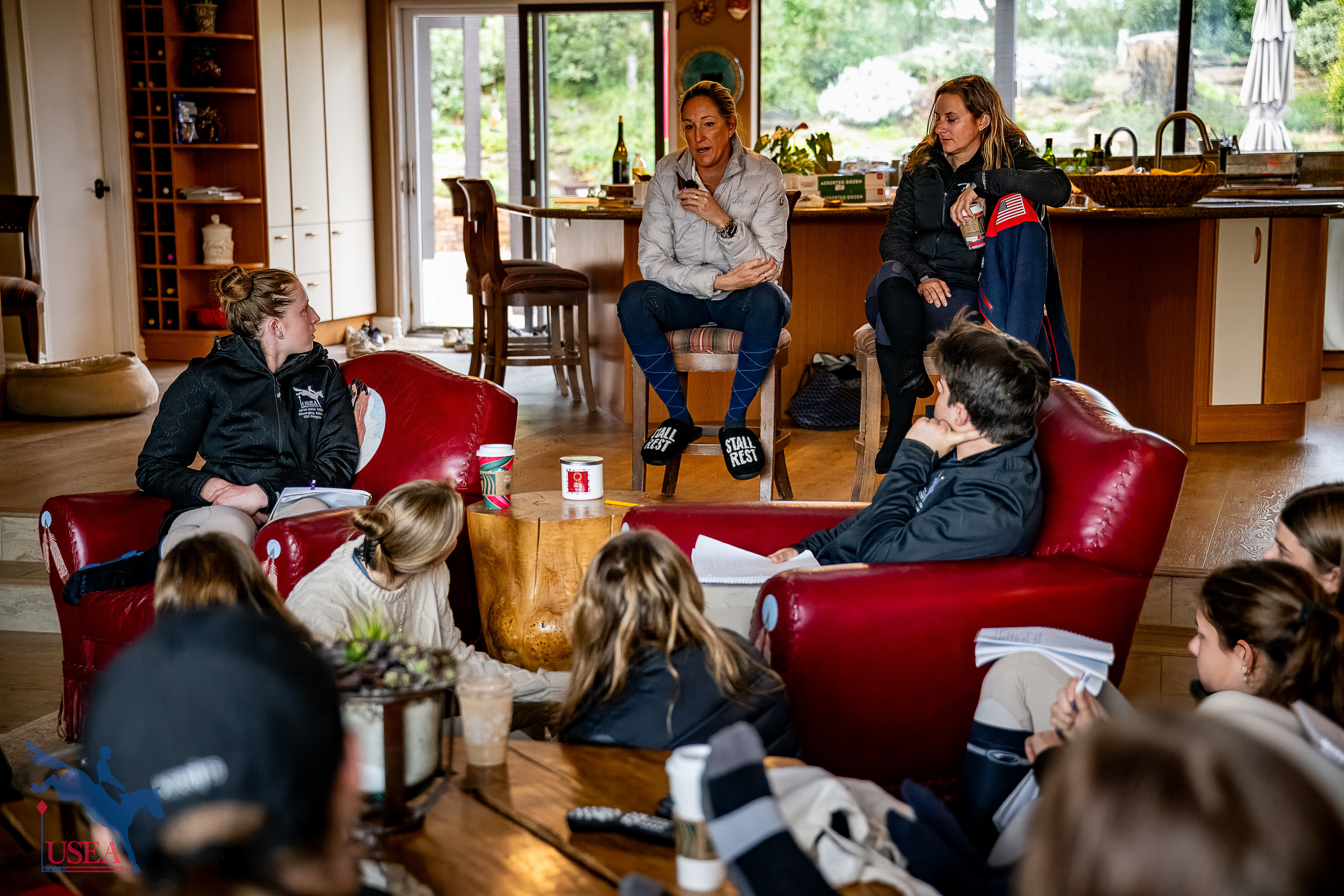
“Boyd Martin gave one of the best talks I’ve ever heard at the Bromont Rising program,” Brown recollected. “He said once you’re organized [with horses and owners] and once you think you’re getting good, give it another 10 years.”
“It’s not a linear path and you have to be adaptable,” Braitling added. Owners will come and go, horses will come and go, and results will come and go. Professionals need to be able to weather the storms of plenty and the storms of lacking.
Both Braitling and Brown echoed O’Connor’s riding philosophy of not getting stuck in the moment with their professional endeavors. “When you have a tough weekend, you can lead yourselves down some dark paths,” Braitling said. “You have to find the tools to refocus and redirect yourself.”
Brown added that a plan is essential. “Even if you don’t go to school, take a business class. Learn how to look at money, how to manage money…Always get away from living in the moment.”
In addition to the professional routes available to them, participants had a discussion about media in the sport with the three coaches. They talked through the different types of interviews riders might be asked to do, how to comport themselves in a mixed zone, and some strategies for emotional control for weekends with the highest highs and lowest lows.
“Everybody knows you are under pressure,” O’Connor said. But in equestrian sports, “it’s a thing to be celebrated that I can go to [the Sydney Olympics], win the gold, and the next weekend get bested by a 14-year-old in an Open Training.”
The rider groups were then divvied up into sessions, and those who had ridden past sunset on previous days got to have their moment in bright daylight as the first up on course work day.
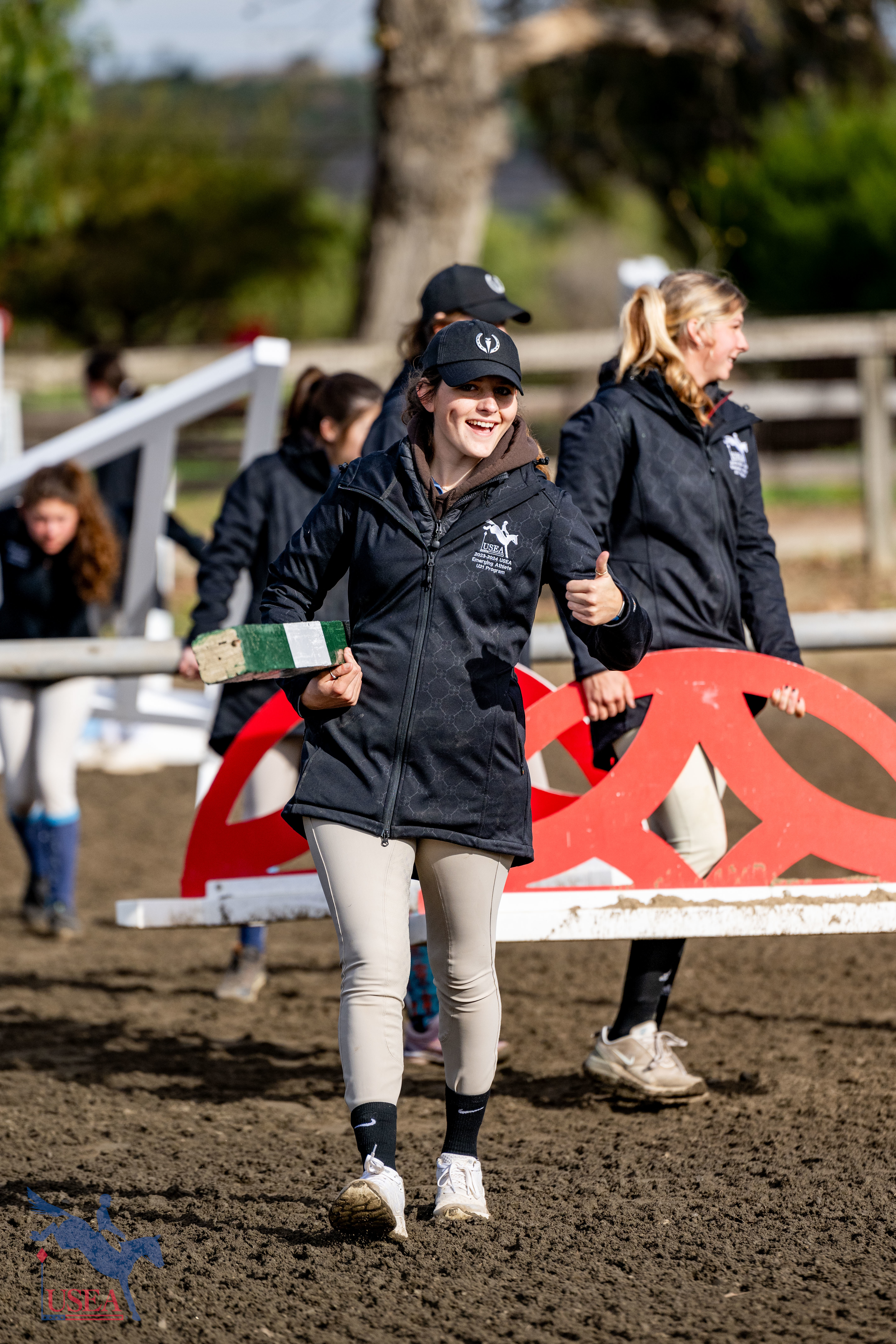
O’Connor had set up a 12 efforts course with related distances, combinations, and a triple bar to keep riders' minds busy. Simulating a competitive environment, he had participants flat on their own. One at a time, he took them through a show warmup and course before offering feedback and then sending them off to again complete the course with his critiques in mind.
Just as in the dressage ring, he identified areas of the course where riders could use the space to prep for upcoming obstacles, recalling the “study of space.” On the course set up for the day, there were three gaps in which riders had a moment to check in with their horses and create a better shape of canter, change a frame, or do a transition to bring attention back to the task at hand.
Some reoccurring themes from the day:
“Do the work early so you can soften before the fence.”
“Don’t commit until you know where you are [the distance to the fence].”
“Coursework and footwork go together.”
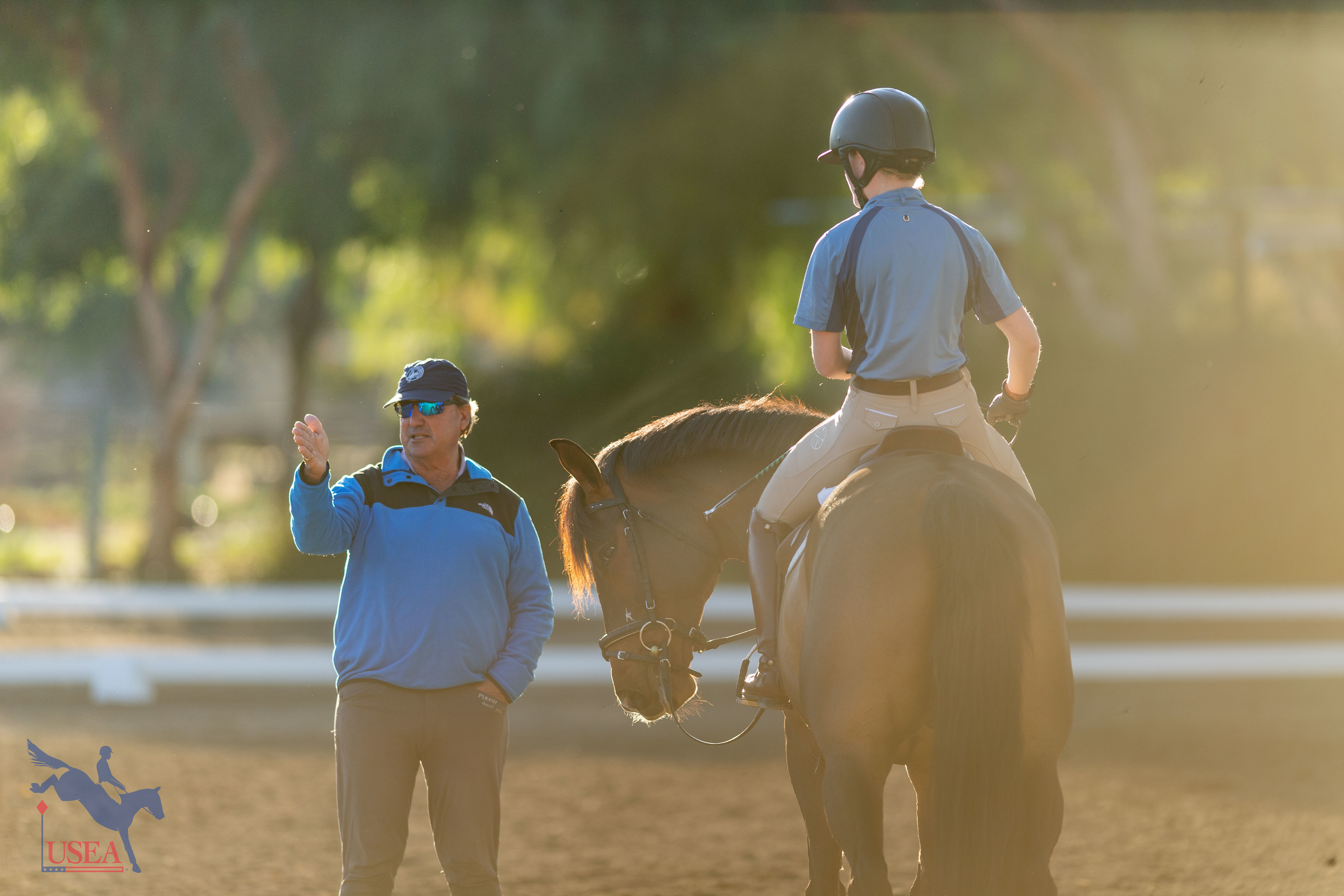
While some riders were able to create good impulsion throughout their course, others were challenged to do so, making communication with their rides difficult.
Katherine Hyndman, in particular, truly had to work to help her horse around the course, and in a true illustration of the community, Padgett pointed out at the beginning of the day, the whole group clucked and jumped with her, cheering her on throughout the ride. An explosion of cheers finished the ride off sweetly as she landed after the final vertical.
O’Connor continued to bring home the idea that good riding improves training and good training brings quality to a ride. As aspiring professionals, he encouraged them to study the horses, learn what they needed, understand if they responded to the questions asked, and position them to best navigate the obstacles ahead be they planks or oxers or triple combinations on a short distance.
“The horse should be more confident as he goes around,” he told the participants. “The first test of the course is to go better and go confident.”
The final day of the EA21 National Camp starts at 8:00 a.m. PST with a classroom lecture and riding sessions at 9:30 a.m. PST with the focus brought to bear on cross-country riding. The camp will conclude for the final time at 4:30 p.m. PST.
Helpful Links:
Don't forget to follow the USEA event coverage on social media!
About the USEA Emerging Athlete U21 Program (EA21)
The purpose of the USEA Emerging Athletes U21 Program (EA21) is to identify and provide consistent quality instruction to the next generation of elite event riders. The aim is to create a pipeline for potential team riders by identifying and developing young talent, improving horsemanship and riding skills, and training and improving skills and consistency.
The USEA Emerging Athletes U21 Program was launched in 2022 with a model of five summertime regional clinics taught by selected USEA Eventing Coaches Program (ECP) instructors, leading to a winter national camp consisting of selected Young Riders from the regional clinics. Athletes who are 21 years or younger, are current members of their USEA Young Rider Area program, and are established at the Training Level or higher, are eligible to apply for the EA21 program. Click here to learn more about the USEA EA21 Program.
The USEA would like to thank Kerrits, Ride iQ, Sidelines Magazine and WeRideTogether for sponsoring the USEA Emerging Athletes U21 Program.
